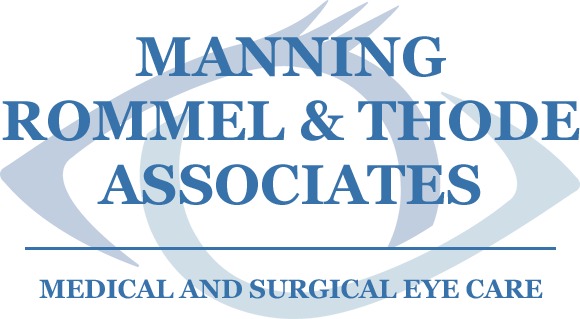Driving at night can be challenging for many people, but it can become even more dangerous for those with cataracts. For individuals with cataracts, night driving can pose serious risks to their safety and the safety of others on the road.

Don’t let cataracts compromise your ability to drive safely at night. Read on to discover how to protect your vision and stay safe on the road.
What are cataracts, and how do they affect vision?
Cataracts are a common eye condition in which the lens of the eye becomes cloudy over time, which leads to blurry vision and difficulty seeing in low-light conditions. They typically develop slowly, and individuals may not even notice changes in their vision at first. However, as the cataracts progress, they can cause blurred or hazy vision, sensitivity to light, difficulty seeing at night, and an overall decrease in visual acuity.
It’s important to note that cataracts do not cause complete vision loss, but they can significantly affect an individual’s ability to drive safely, especially during night.
The impact of cataracts on night driving
Navigating through dark and winding roads is a common occurrence in Lancaster, PA. That being said, understanding the impact of cataracts on night driving is crucial. The cloudy lens makes it difficult for light to pass through, which can lead to decreased contrast sensitivity and an inability to make out objects in low-light conditions. This can lead to delayed reactions, misjudgment of distances, and an increased likelihood of accidents.
Cataracts can also cause problems with glare, especially when it comes to oncoming headlights. The cloudy lens scatters light, making it difficult to see clearly when faced head-on with bright lights. This can cause both discomfort and even temporary blindness, which further impairs the driver’s ability to navigate the road safely. Furthermore, those with cataracts may also experience a loss of depth perception, which makes it harder to judge distances accurately. This can be particularly dangerous when switching lanes, turning, or maneuvering through intersections.
Understanding the risks of night driving with cataracts
While cataracts may pose challenges for night driving, there are several strategies that individuals can use to increase their safety on the road.
Some of those strategies include:
- Ensure proper lighting: Make sure your vehicle’s headlights are clean and properly aligned, and keep the windshield and mirrors clean to minimize glare and maximize visibility.
- Increase following distance: Leave more space between you and the vehicle in front to allow for additional reaction time. This can help prepare for any delays in perceiving objects or judging distances due to cataracts.
- Avoid driving during peak glare hours: If possible, try to limit your driving to times when there is less glare from the sun, such as early evening or early morning. If driving during the day, use anti-glare glasses.
- Use road markings as a guide: Pay attention to the road markings, such as lane dividers and reflectors, to help navigate the road better.
- Consider alternative transportation: If you find your vision is significantly impaired by cataracts, it may be safer to rely on public transportation, taxis, or rideshare services for night travel.
Remember, while these tips are meant to enhance safety while driving with cataracts, they do not replace the need for proper treatment and regular eye care.
Seeking professional advice for cataract treatment in Lancaster, PA
For those struggling with cataracts, seeking professional advice from eye care specialists is crucial. When cataracts start to significantly impact your vision and daily activities, your eye care specialist may recommend surgery. Rest assured, cataract surgery is a safe and effective procedure that involves removing the cloudy lens and replacing it with an artificial intraocular lens (IOL). It is typically performed on an outpatient basis and has a high success rate in restoring clear vision.
The importance of regular eye exams for detecting cataracts
Taking the time to research and select the right surgeon can greatly increase the likelihood of a successful surgery and an improved quality of life. That being said, choosing the right surgeon for your cataract surgery is imperative for a successful outcome.
When selecting a surgeon in Lancaster, PA, consider the following factors:
- Experience: Look for someone who has extensive experience in performing cataract surgeries specifically. Check their credentials, reviews, and patient testimonials to gauge their expertise and track record.
- Technology and techniques: Inquire about the techniques and technology used. Newer, advanced techniques, such as laser-assisted cataract surgery, can enhance precision and optimize results.
- Patient-centered approach: A good surgeon will prioritize patient education, listen to your concerns about the process, and provide personalized recommendations based on your needs and preferences.
- Facility and support staff: Evaluate the surgical facility and support staff involved throughout your care. A well-equipped facility and a knowledgeable team greatly contribute to a smooth and comfortable surgical experience.
Treatment options for cataracts in Lancaster, PA
After cataract surgery, maintaining proper post-operative care and recovery are essential for your healing process. Your surgeon will provide you with detailed instructions on how to care for your eyes, including, but not limited to, the use of prescribed eye drops, avoiding strenuous activities, and protecting your eyes from potential irritants.
You will need to attend all scheduled follow-up appointments to monitor your progress and address any concerns as you heal. Your eye care specialist will evaluate your healing process, assess your visual acuity, and make any necessary adjustments to ensure the best possible outcome for your vision.
During the recovery period, you may experience mild discomfort, sensitivity to light, and temporary changes in vision. Please note that these symptoms are very common, usually temporary, and resolve as your eyes heal. However, if you start to experience severe pain, sudden vision loss, or any other concerning symptoms, contact your surgeon immediately.
With proper care and following your surgeon’s instructions, you can expect significant improvements in your vision and a return to normal activities within a few weeks following cataract surgery.
Taking proactive steps for better vision and safer night driving
If you find your cataracts have started to severely affect your vision, especially when driving at night, it’s time to consider seeking professional help. Surgery may be the best option for you, so make sure to follow all care instructions provided by your surgeon to ensure a healthy, speedy recovery.
Contact Manning, Rommel & Thode Associates today to learn more.
